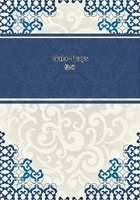
第92章
Is that private? I find in a book regularly printed and published, a book written by a former President of the College,--a man whom no words of mine can affect, yet whom Icannot pass without laying at his feet my tribute of gratitude and reverence; a man who lives to receive from his contemporaries the honors which are generally awarded only by posterity,--I find in this book accounts of votes passed by the Corporation and Overseers, prohibiting Commencers from "preparing or providing either plum-cake, or roasted, boiled, or baked meats, or pies of any kind"; and afterwards, if anyone should do anything contrary to this act, or "go about to evade it by plain cake, they shall not be admitted to their degree; and also, "that commons be of better quality, have more variety, clean table-cloths of convenient length and breadth twice a week, and that plates be allowed." Now if the plum-cake and pies of the "Commencers" are spread before the public, how shall one know that the plum-cake and pies of an occasion at least equally public, and only a month beforehand, must not be mentioned? If any family in Beacon Street should publish its housekeeping rules and items in this unhesitating manner, I think a very pardonable confusion of ideas might exist as to what was legitimately public, and what must be held private. If it be said that these items concern a period from which the many years that have since elapsed remove the seal of silence, I have but to turn to the Boston Daily Advertiser, a journal whose taste and judgment are unquestionable, and find in its issue of July 18, 1863, eight closely printed columns devoted to a minute description of what they said, and what they did, at the College festival arranged by the Association of the Alumni, in which description may be read such eminently private incidents as that--by some unfortunate mistake, which would have been a death-blow to any Beacon Street housekeeper--there were one hundred more guests than there were plates, and--what it might be hoped would be quite unnecessary to state--that the unlucky De trop "bore the disappointment with the most admirable good-breeding, AND RETIRED FROM THE HALLWITHOUT NOISE OR DISTURBANCE." (Noble army of martyrs! Let a monument more durable than brass rise in the hearts of their countrymen to commemorate their heroism, and let it graven all over, in characters of living light, with the old-time query, "Why didn't Jack eat his supper?")I find also in the same issue of the same paper the Commencement Dinner, its guests, its quantity and quality, its talk, its singing of songs, and giving of gifts, spread before the public.
If, now, the festivities of Commencement and of the Alumni Association are public, by what token shall one know that the festivities of Class-Day, which have every appearance of being just as public, are in reality a family affair, and strictly private?
I have spoken of waltzing. The propriety of my speaking must stand or fall with the previous count. But in the book to which I have before referred is recorded a vote passed by the Overseers, "To restrain unsuitable and unseasonable dancing in the College." If a rule of the College is published throughout the land, is not the land in some measure appealed to, and may it not speak when it thinks it sees a custom in open and systematic violation of the rule?